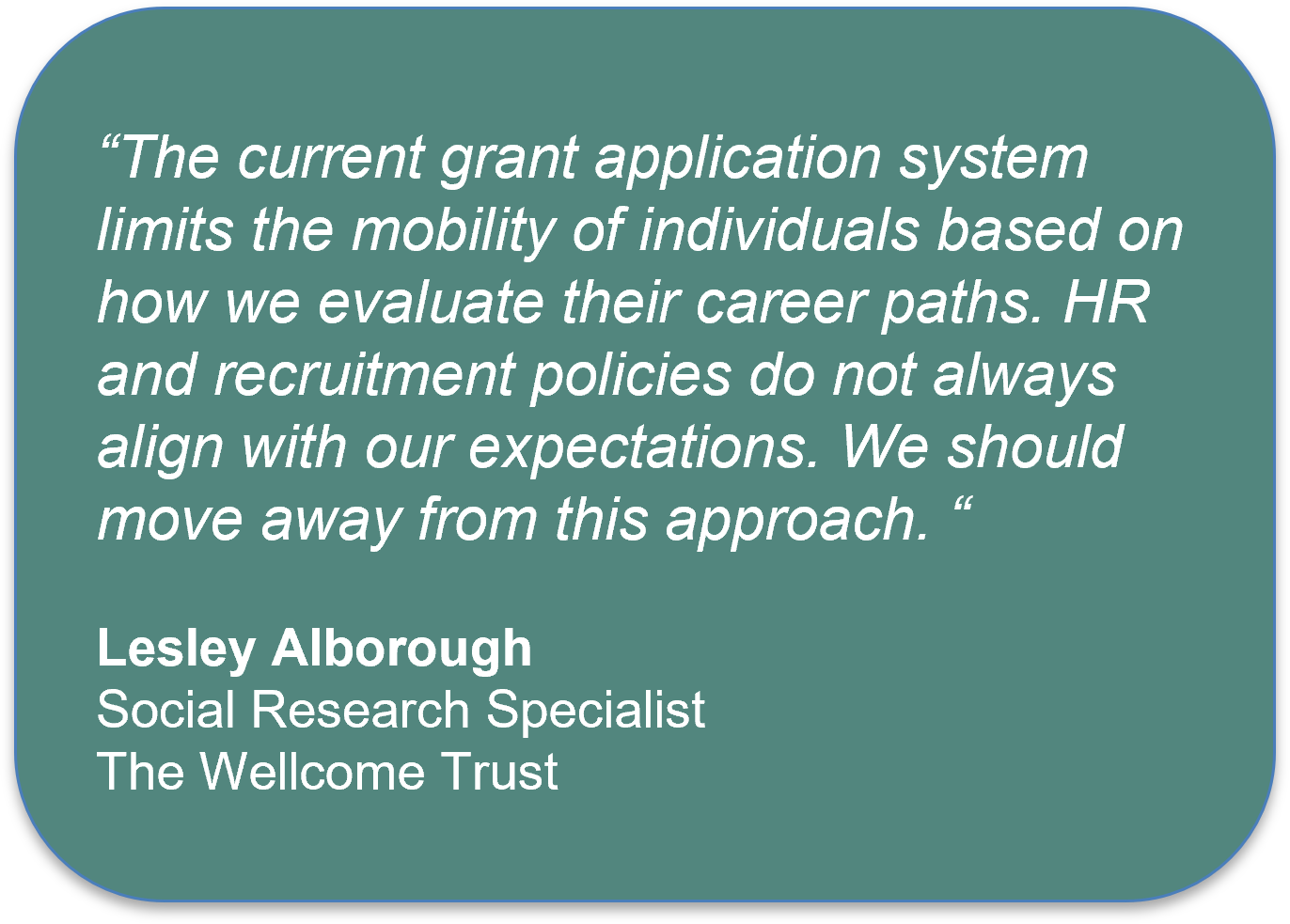The report (PDF below) compiles the results of the workshop, which center on the challenges of EDI that must be taken into account when embracing interdisciplinary and collaborative ‘team science’, as well as potential strategies for enhancing and fostering interdisciplinary collaboration. Additionally, it addresses the initiatives that can encourage inclusive attitudes and behaviors to foster the growth of a research environment that nurtures interdisciplinary researchers.
A. Participants

The panel consisted of 14 people from different stakeholder groups who support equality, diversity, and inclusion (EDI) and interdisciplinary research culture. This varied group included representatives from UK funding bodies working on research culture and EDI, researchers leading EDI efforts in UK universities, and experts in interdisciplinary issues. Among the attendees were:
• Alys Kay, senior researcher developer on the THRIVE project, University of Liverpool.
• Helen Marsh, Trust Manager, Daphne Jackson Trust.
• Joanna Thornbourgh, Senior Policy Adviser (Higher Education and Skills), The British Academy.
• Lesley Alborough, Social Research Specialist, The Wellcome Trust.
• Matt Bailey Smith, Dean of Research Culture and interdisciplinarian, Northumbria University.
• Veronica Strang, anthropologist, expert in interdisciplinary research, University of Oxford.
B. Conclusions

Despite some advances in promoting specific aspects of EDI in collaborative settings, there are still considerable challenges to overcome. Additional measures are required to foster a more inclusive and diverse environment that empowers all researchers to thrive:
• Acknowledge the vulnerability of individuals pursuing an academic career. Interdisciplinary research involves extra risks.
• Engage in honest and difficult conversations.
• Recognise power dynamics when facing challenges to the status quo.
• Communicate with transparency and appreciation for diverse problem-solving approaches.
• Question assumptions about leadership qualities
• Be thoughtful and supportive in the language used for recruitment, advancement, and funding criteria.
C. Recommendations

X-Net recommends some interventions for higher education institutions and research centres seeking an accelerated change towards an inclusive collaborative research culture that catalyses interdisciplinary research. Change will require synergy and active engagement among leadership teams, academics, HR, and research professionals.
The recommendations are described in the workshop’s report (Appendix 1) and align with X-Net’s general recommendations outlined in the report “Sweeping away Barriers to Interdisciplinary Research.” These recommendations promote mobility across disciplines and sectors, enable a nurturing environment, and ensure equitable evaluation and opportunity.
D. Further resources
Initiatives improving EDI, Research Culture and fostering Interdisciplinary Research in the UK:
• 10,000 Interns Foundation: paid internships for black and disabled students and graduates of all ethnicities in UK industries.
• Daphne Jackson Trust: blog posts on overcoming various career challenges and barriers, by Dr Andy Clempson for research returners (useful to interdisciplinary researchers).
• Leonard Cheshire, Change 100 internships: paid summer work placements, professional development and mentoring for university students and recent graduates with any disability or long-term condition.
• Horizons Institute, University of Leeds: research environment bringing together and facilitating interdisciplinary and cross-sectional collaborations to tackle global challenges.
• Narrative CVs: a flexible framework for qualitatively documenting experience, and achievements being adopted by funders and developed by the Joint Funders Group.
• Shift Insight, UK Reproducibility Network & Vitae. Research Culture Initiatives in the UK, 2024: UK Research and Innovation (UKRI) commissioned a report to map research culture activities across the UK.
• Strang V. & McLeish T. (2015) “Evaluating Interdisciplinary Research: a practical guide.” Institute of Advanced Study, Durham University. Generosity and hospitality are essential for fostering interdisciplinary research cultures.
• Other initiatives: Crucible Programme, Future Leaders Fellows (FLF) Development Network, HDRUK Health Data Science Black Internship Programme, Inclusive Leadership programme, InFrame Project, Career Mobility Taskforce, The British Academy’s Additional Needs Fund, The British Academy's Innovation Fellowships, The British Academy’s Talent Development Awards, THRIVE.

